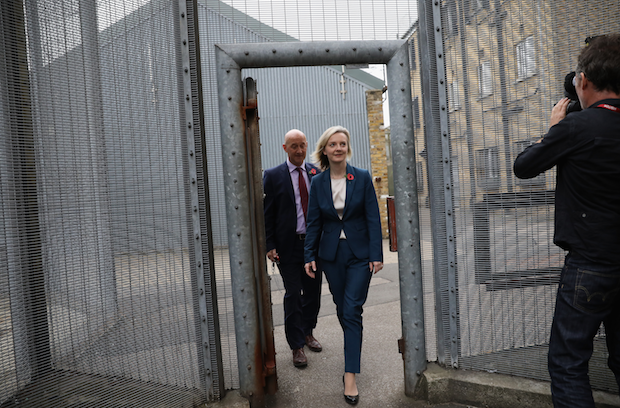On Friday, Birmingham prison played host to the worst prison riot since the Strangeways jail riot 16 years ago. Stairwells were set on fire and paper records destroyed as the chaos spread across four wings of the privately-run G4S prison. The problems then continued over the weekend with further incidents reported at Cardiff Prison and Hull Prison on Sunday involving Birmingham prisoners, who had been moved
Today Liz Truss attempted to address the problem with a statement in the Commons. The Justice Secretary said she had launched an inquiry into the incident, and insisted she was confident that government reforms will make prisons safer. However, Truss warned that the next few months will be difficult:
‘As I have said before, levels of violence are too high in our prisons. We also have very concerning levels of self-harm and deaths in custody. That is why we are reforming our prisons to be safe and purposeful places and taking swift action to deal with drugs, drones and phones.
It is important to remember that these problems have developed over a number of years and it will take time and it will take concerted effort to turn the situation round.’
Her words did little to appease Richard Burgon, the shadow justice secretary, who described the incident as a ‘symptom’ of a crisis revealing a ‘failing government that has lost control’. It’s true that the Birmingham riot is just one in a series of problems of late — from escaped prisoners to increased reports of violence. However, while Truss is yet to shine in her role, it would be unfair to level too much blame at her. The problems are longstanding. Since 1993 the prison population has almost doubled to 85,000.
While Truss insists she has confidence in the government’s reforms, what’s clear from recent events is that such changes are not being put through fast enough. The government will need to make prison reform one of its top priorities if it is to stop the issue from turning into an even bigger crisis.







Comments